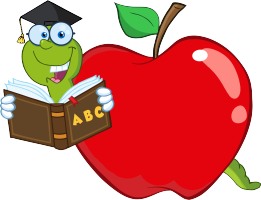Homeschool Reading Curriculum for 3rd Grade
A homeschool reading curriculum for 3rd grade focuses on advanced phonics, comprehension skills, and various literature genres. Literary elements such as plot structure, character development, and theme analysis are introduced to cultivate independent readers with strong decoding skills and the ability to engage deeply with a wide range of literary works.
Homeschool Reading Curriculum for 3rd Grade Sample
Weeks 1-4: Advanced Phonics and Decoding Skills
- Reinforce advanced phonics rules, including vowel patterns and syllabication.
- Practice decoding multisyllabic words.
- Engage in phonics-based games and activities.
Weeks 5-8: Vocabulary Enrichment
- Introduce and explore more complex vocabulary words.
- Discuss word meanings, synonyms, and antonyms.
- Encourage the use of new words in both speaking and writing.
Weeks 9-12: Literary Elements
- Explore literary elements such as plot structure, character development, and setting.
- Analyze short stories and begin discussing themes.
- Foster critical thinking about narrative elements.
Weeks 13-16: Genre Study
- Dive into the exploration of different literary genres.
- Read and analyze examples of fiction, non-fiction, poetry, and historical fiction.
- Encourage students to identify critical characteristics of each genre.

Weeks 17-20: Guided Reading and Comprehension Strategies
- Implement guided reading sessions with a focus on deeper comprehension.
- Teach and practice comprehension strategies such as predicting, summarizing, and making connections.
- Discuss the main ideas and nuances of the texts.
Weeks 21-24: Independent Reading Projects
- Assign independent reading projects, allowing students to choose books based on personal interests.
- Include book reports, presentations, or creative responses to the readings.
- Encourage discussions about the chosen books.
Weeks 25-28: Poetry and Figurative Language
- Explore various forms of poetry, emphasizing figurative language.
- Analyze poems for metaphors, similes, and other poetic devices.
- Encourage students to create their poems.
Weeks 29-32: Novel Study
- Select a longer novel for a more in-depth study.
- Engage in chapter-by-chapter discussions, character analysis, and reflections.
- Encourage students to connect the novel to broader themes.
Weeks 33-36: Review and Culmination
- Review critical concepts learned throughout the year.
- Culminate the curriculum with a comprehensive project, presentation, or literary analysis.
- Celebrate the achievements and progress made in reading.

Homeschool Reading Curriculum for 3rd Grade Time Spent
For 3rd-grade homeschoolers, a suggested guideline for reading activities is approximately 45 to 60 minutes per day, spread throughout the week. Here's a breakdown:
1. Daily Reading Aloud (15-20 minutes):
- Start a read-aloud session using more complex and engaging literature each day.
- Discuss the story, characters, and encourage questions.
2. Phonics and Vocabulary Practice (10-15 minutes):
- Reinforce advanced phonics and vocabulary skills through interactive activities.
- Use games, flashcards, and word-building exercises.
3. Guided Reading (15-20 minutes):
- Implement guided reading sessions with leveled books.
- Focus on deeper comprehension, critical thinking, and discussions about the text.
4. Independent reading (10-15 minutes):
- Encourage independent reading with age-appropriate books.
- Allow the child to choose books based on personal interests.
5. Literary Exploration and Projects (5-10 minutes):
- Introduce literature-related activities, such as discussions, projects, or creative responses.
- Encourage the child to reflect on and explore themes in the readings.
Balanced reading involves various activities that enhance literacy. Consider the child's needs and adjust the material accordingly. A positive learning atmosphere encourages a love for reading.


